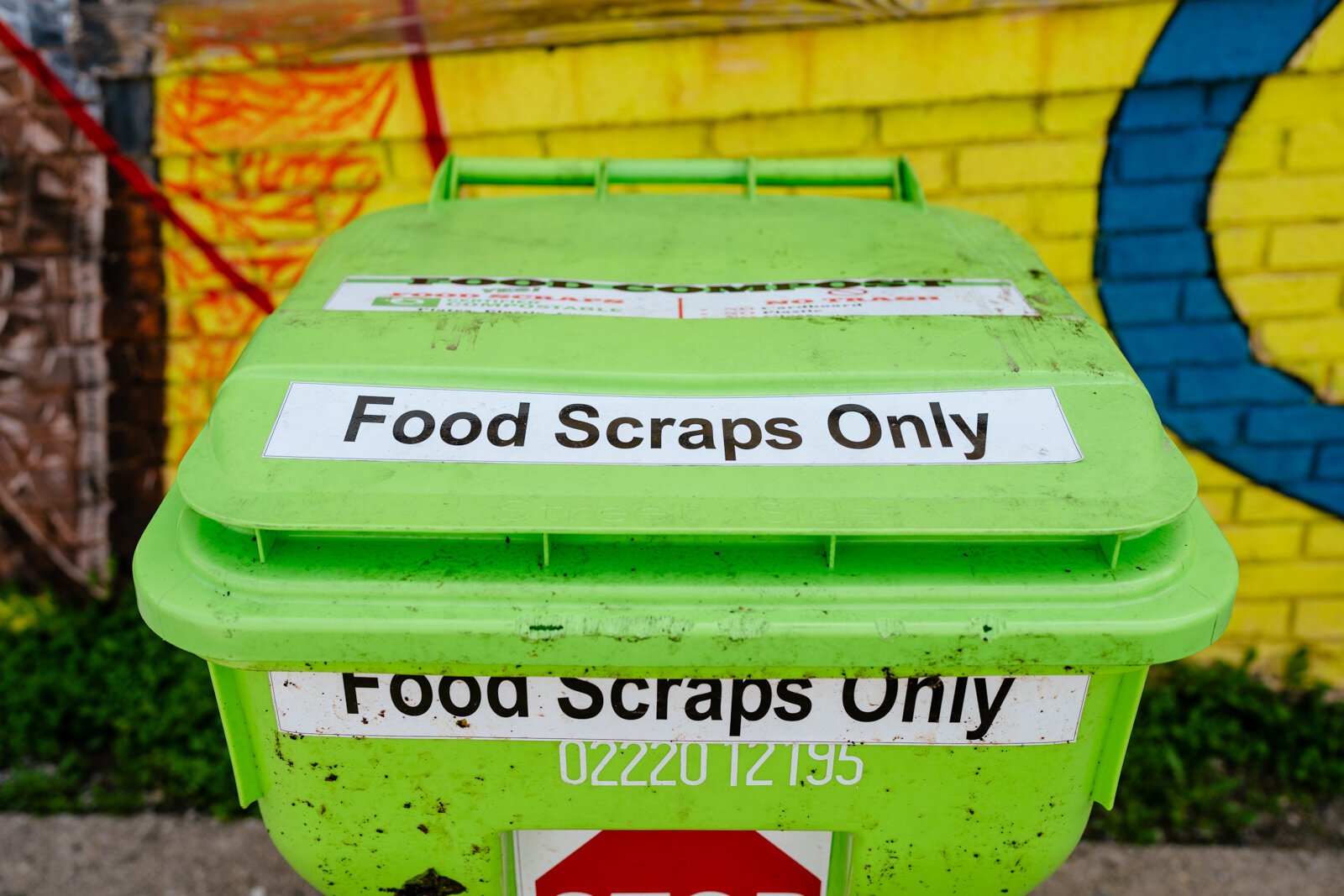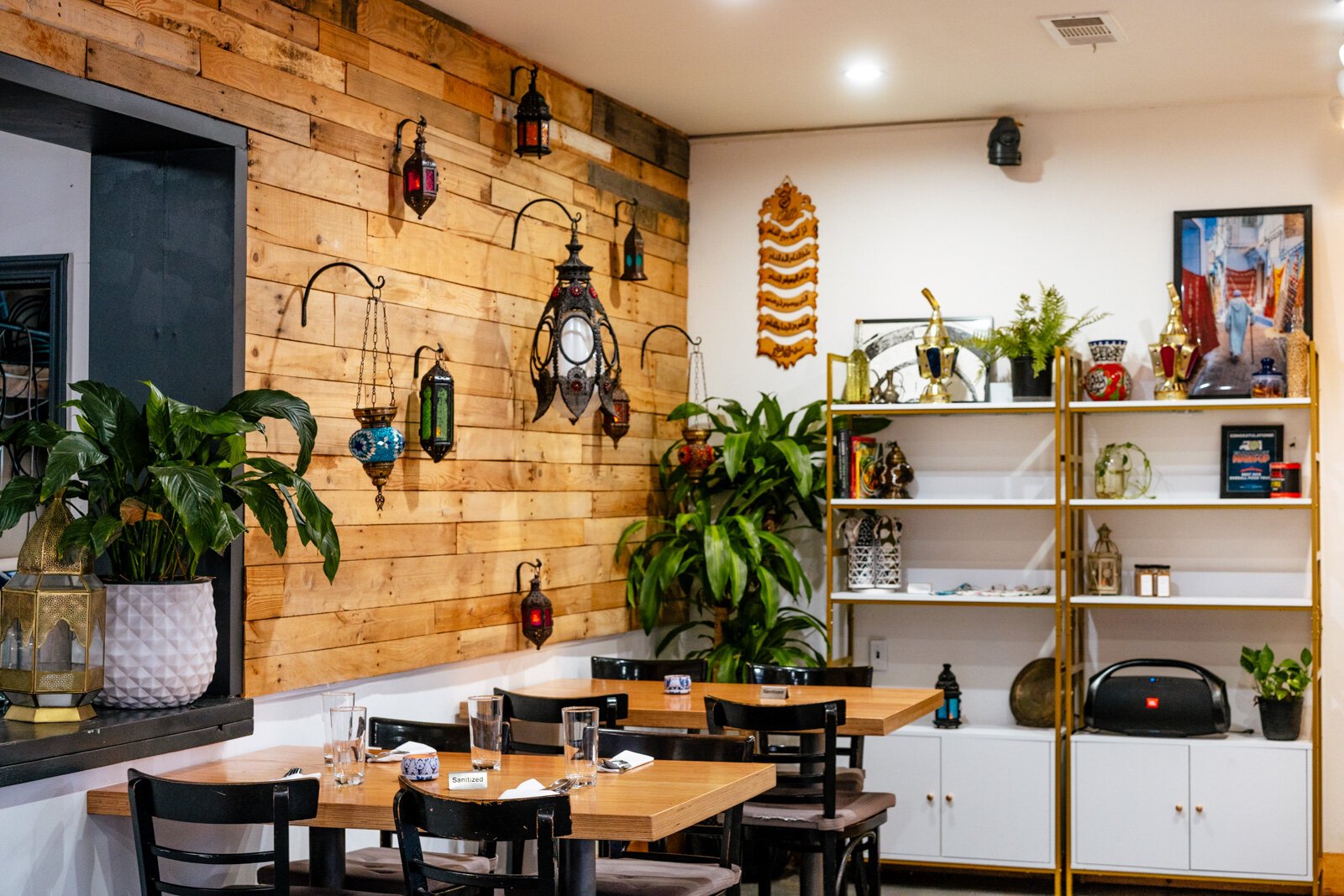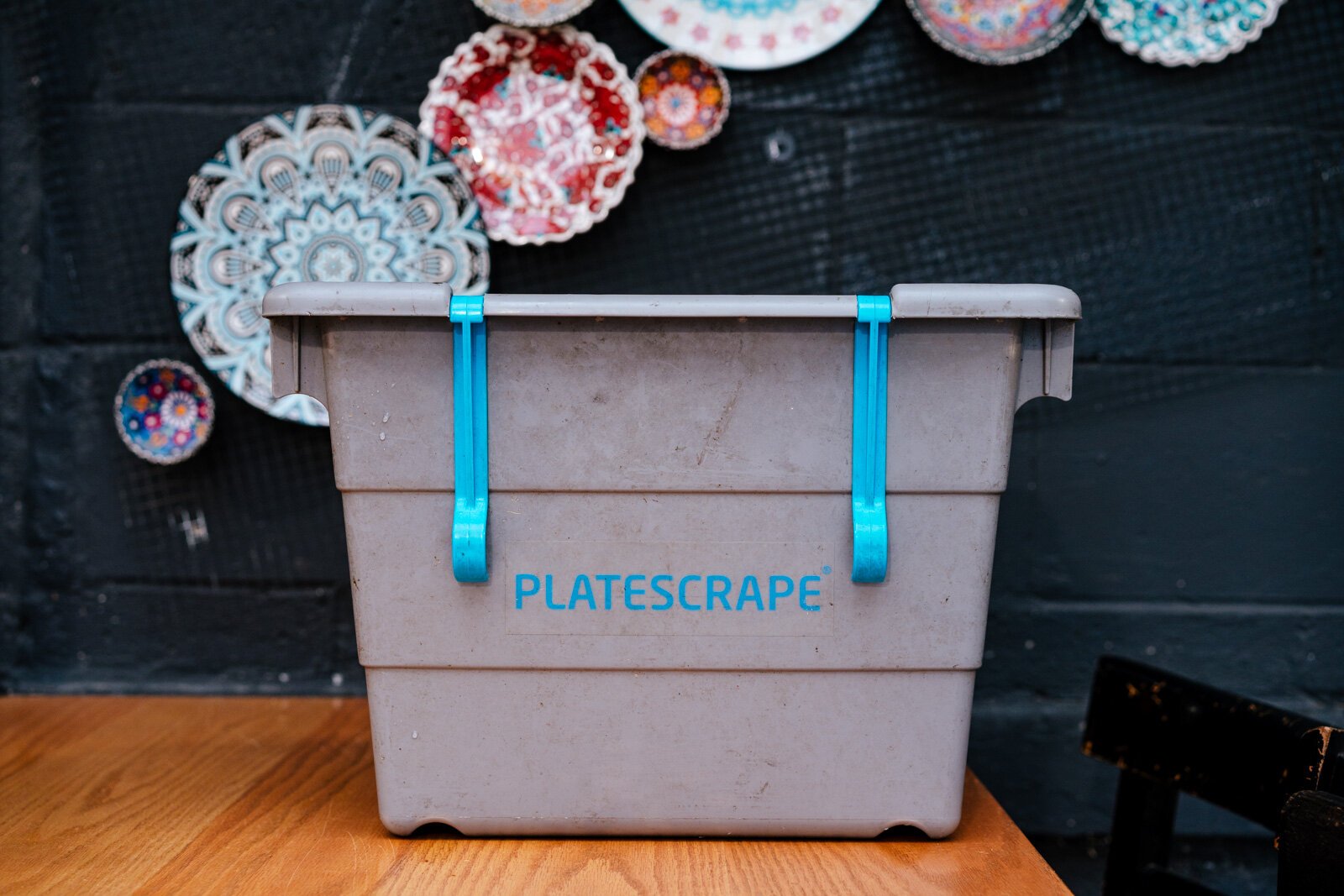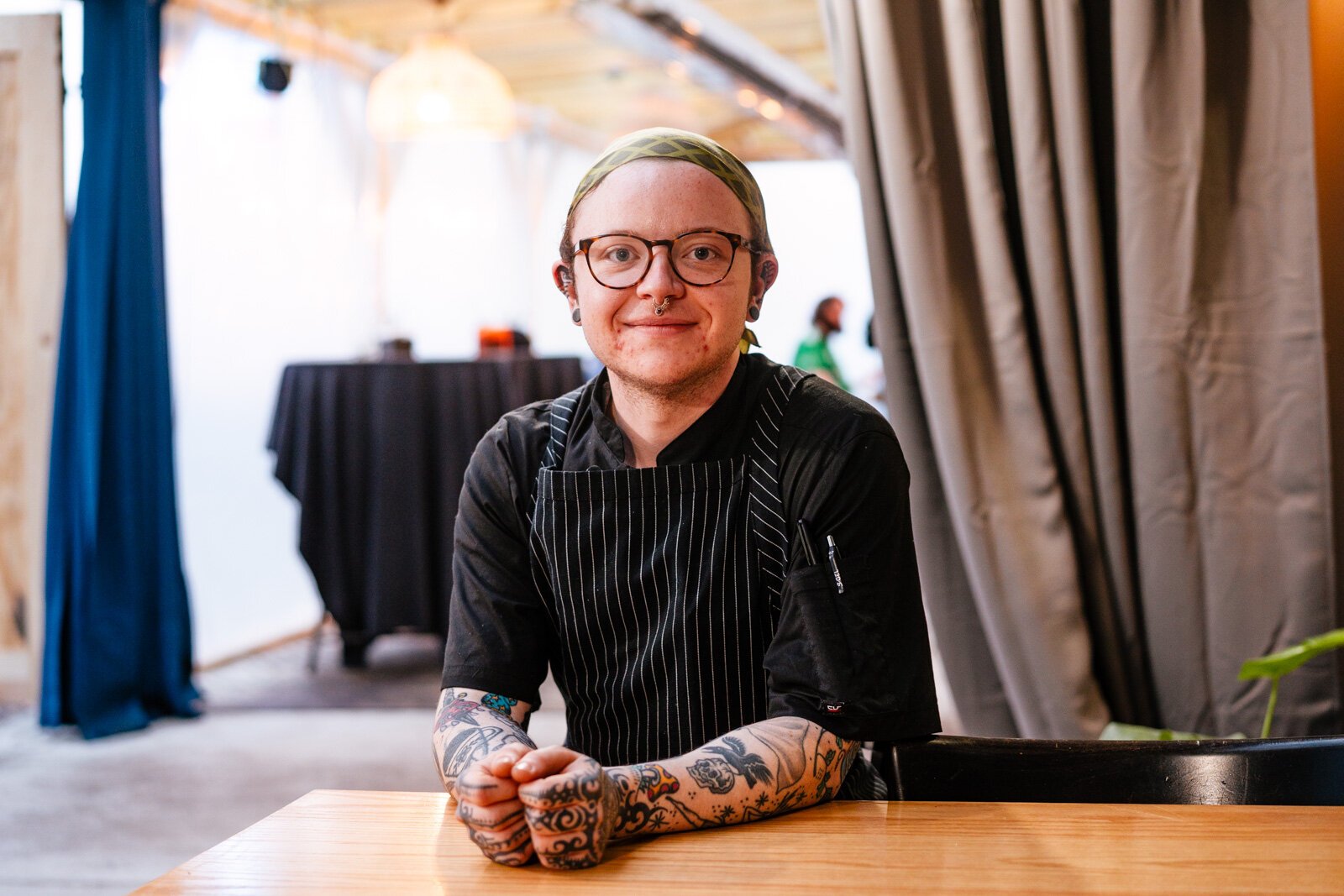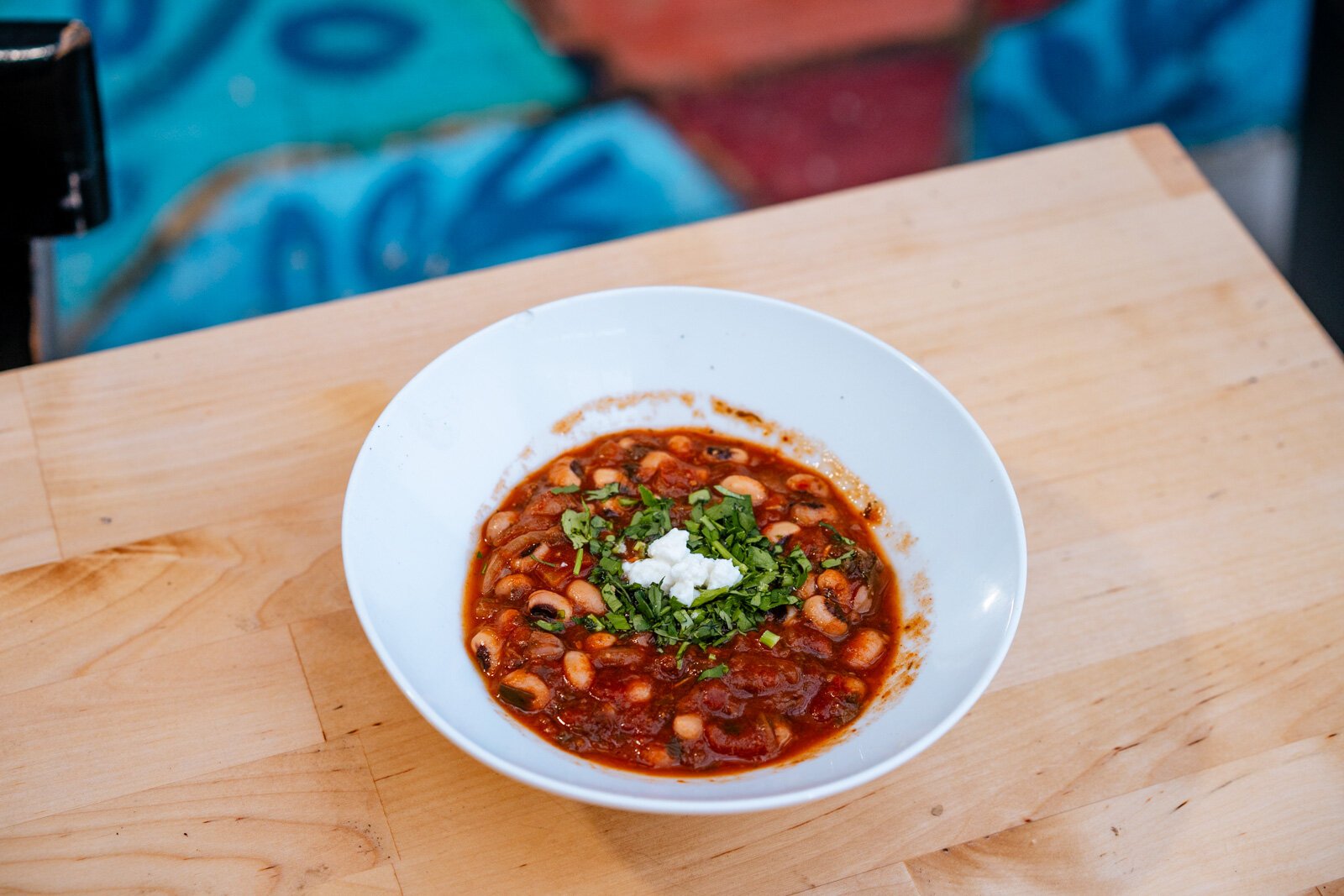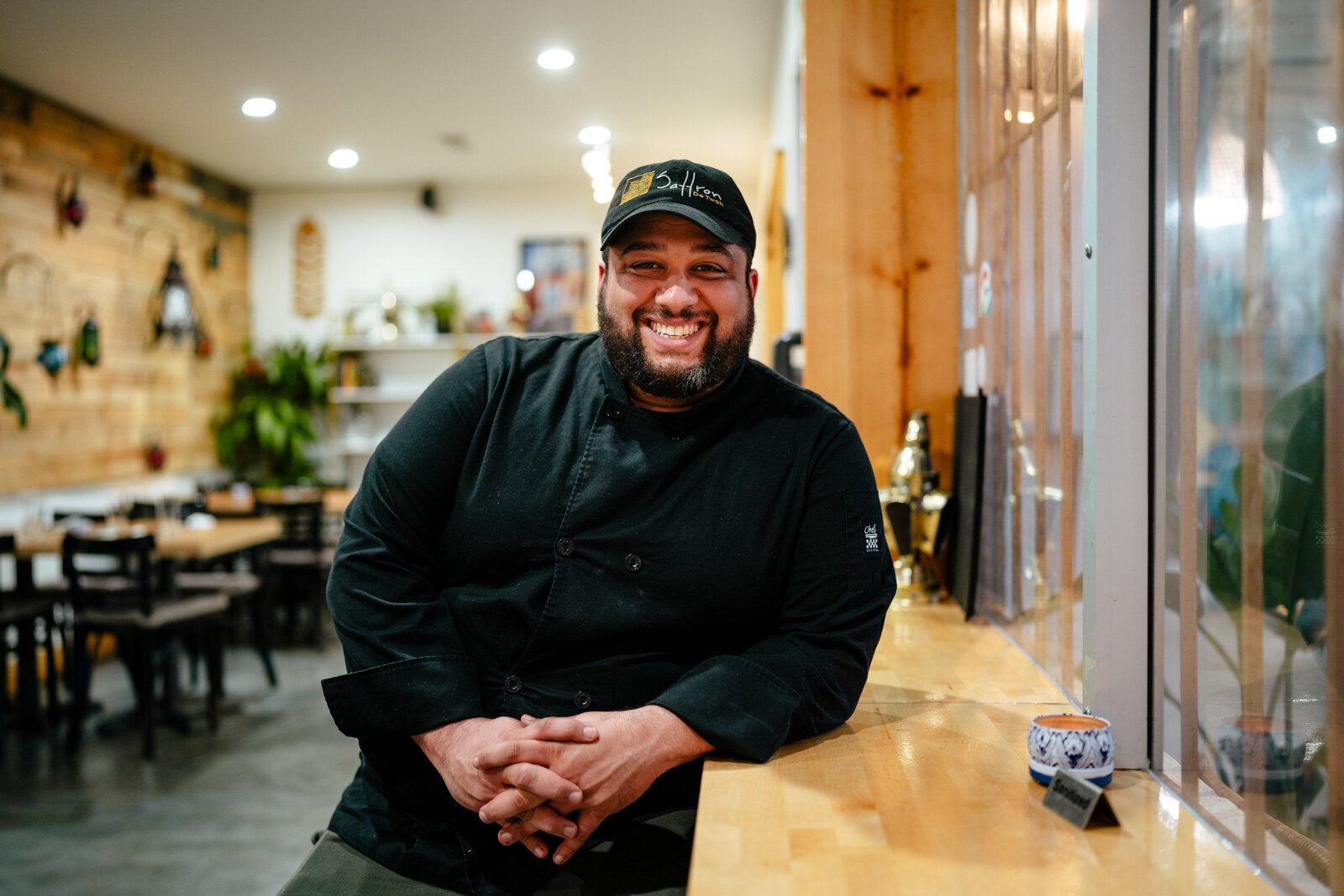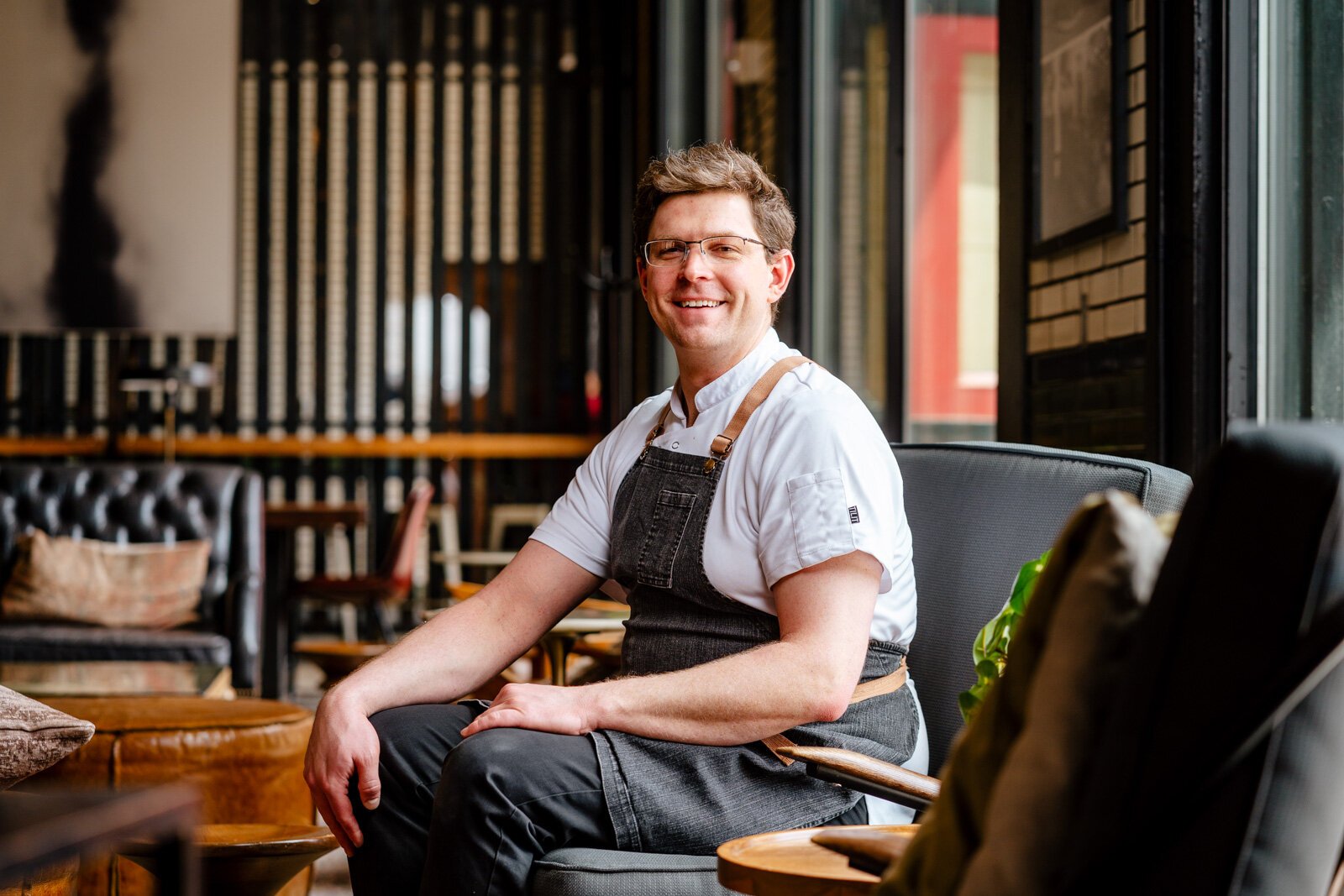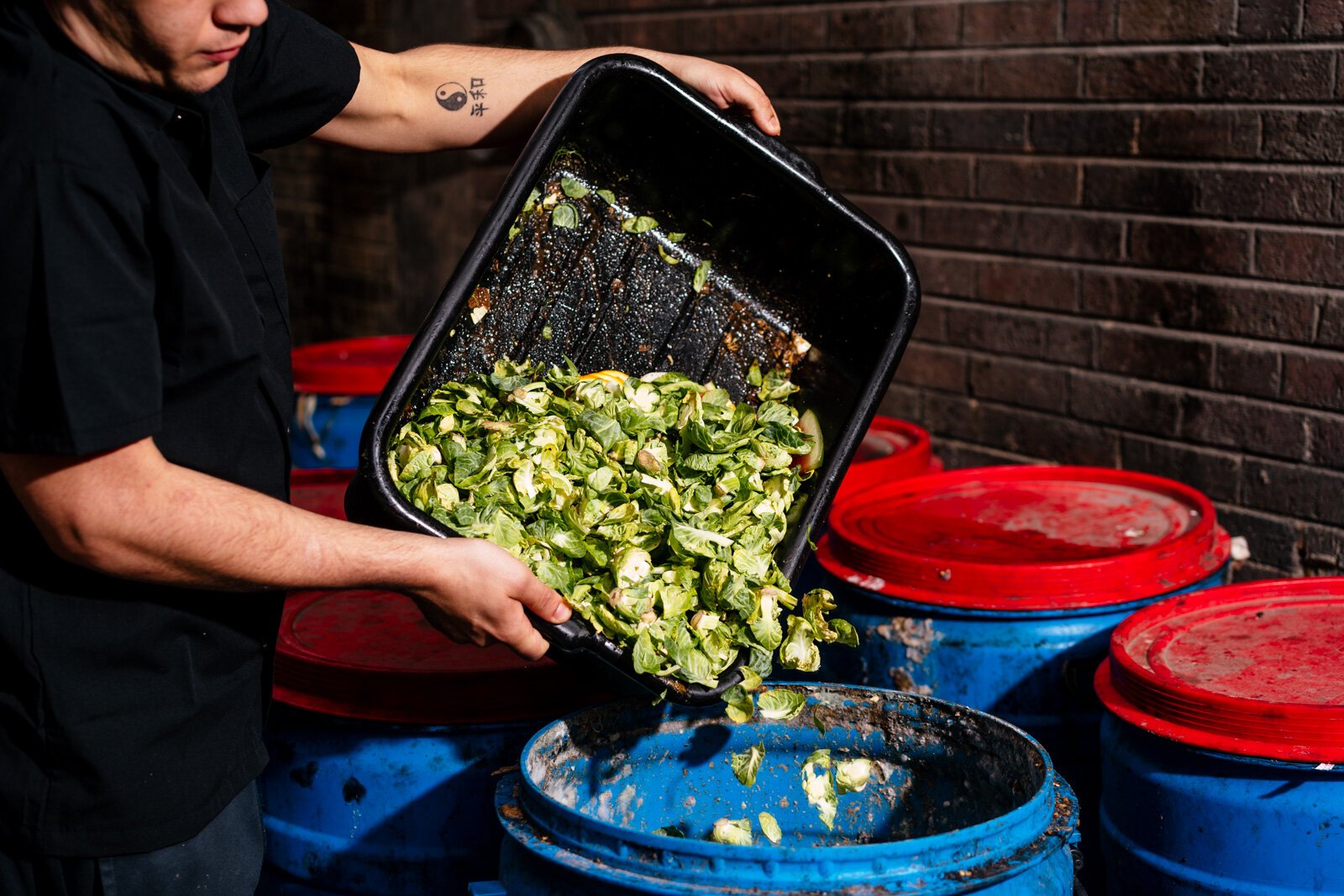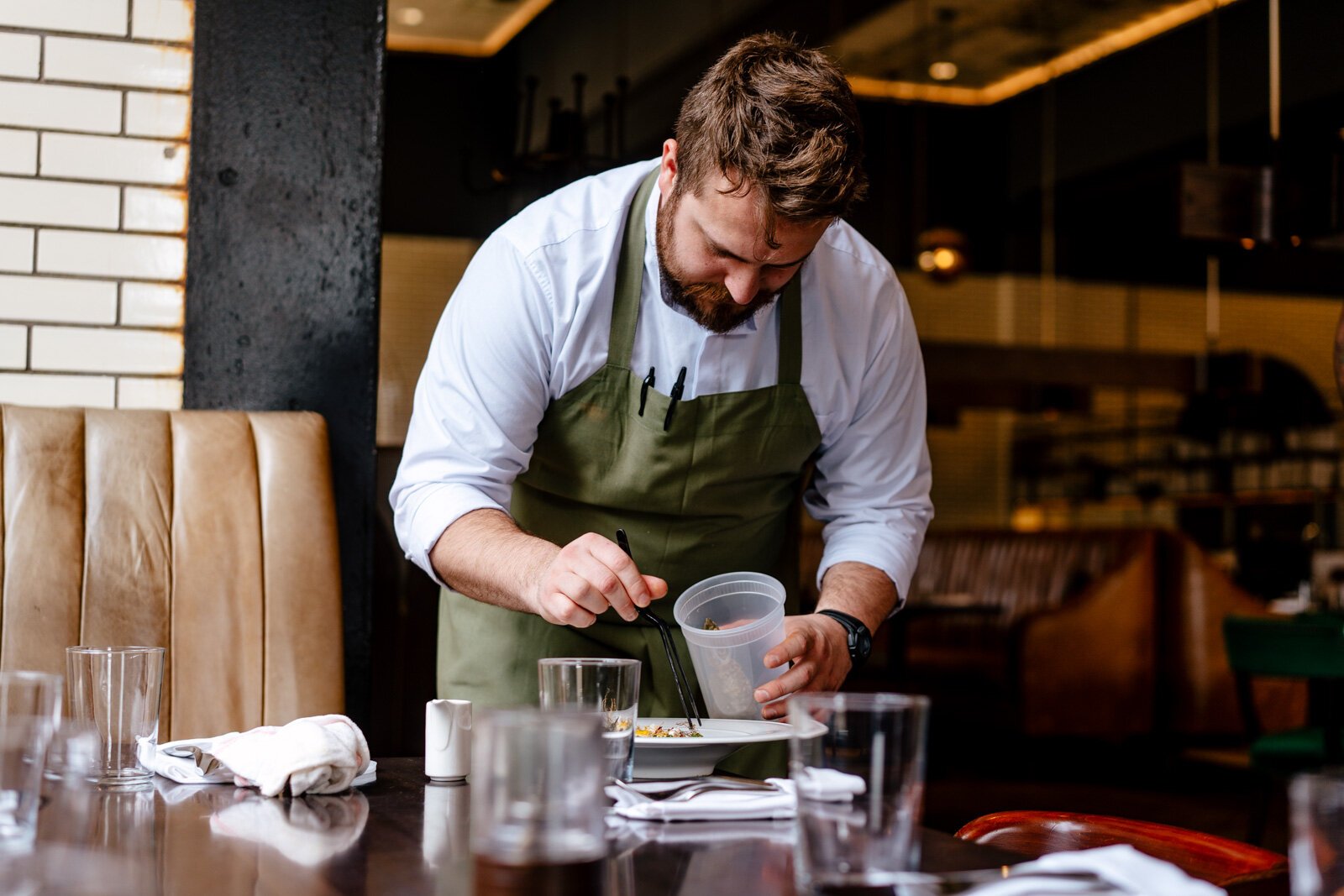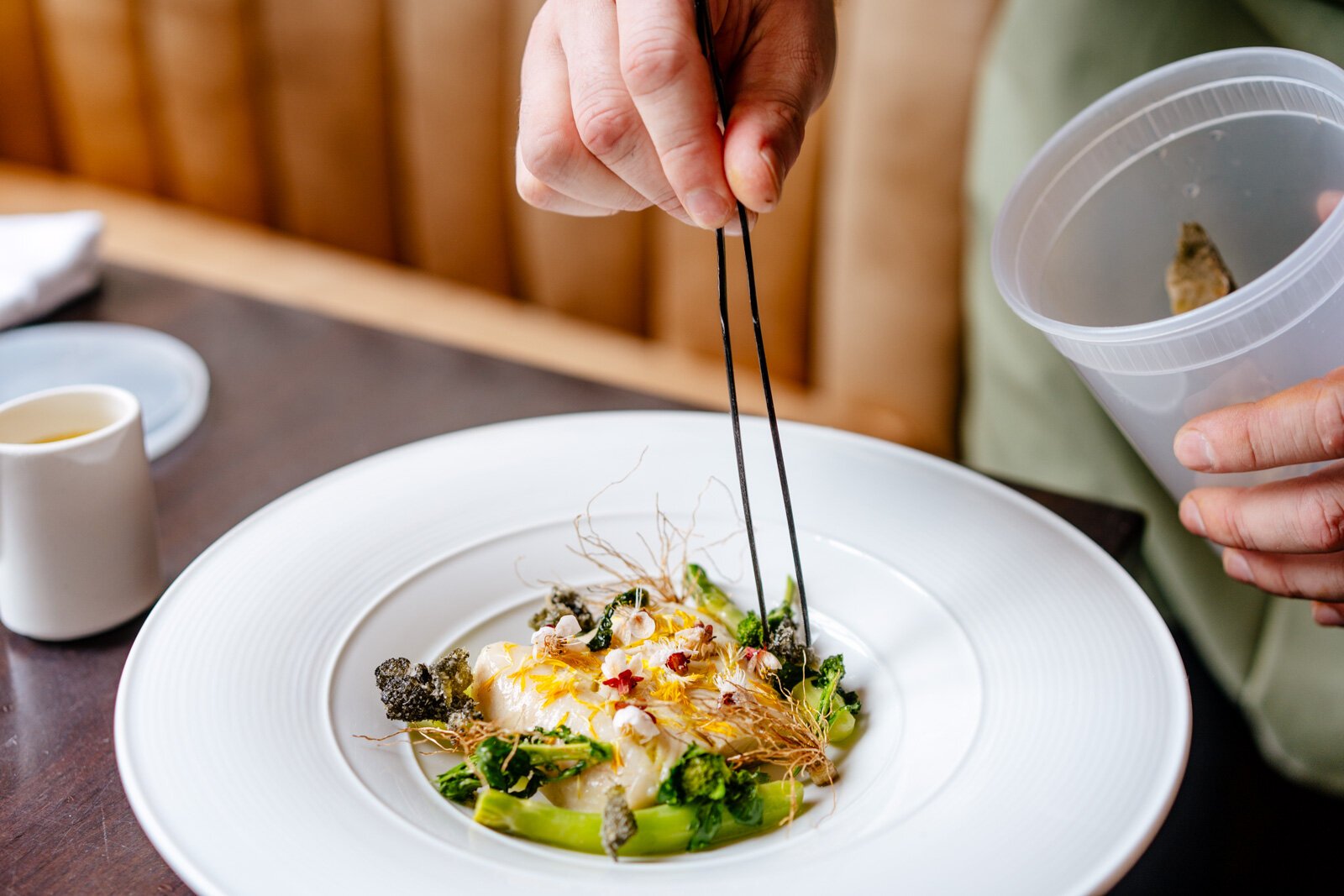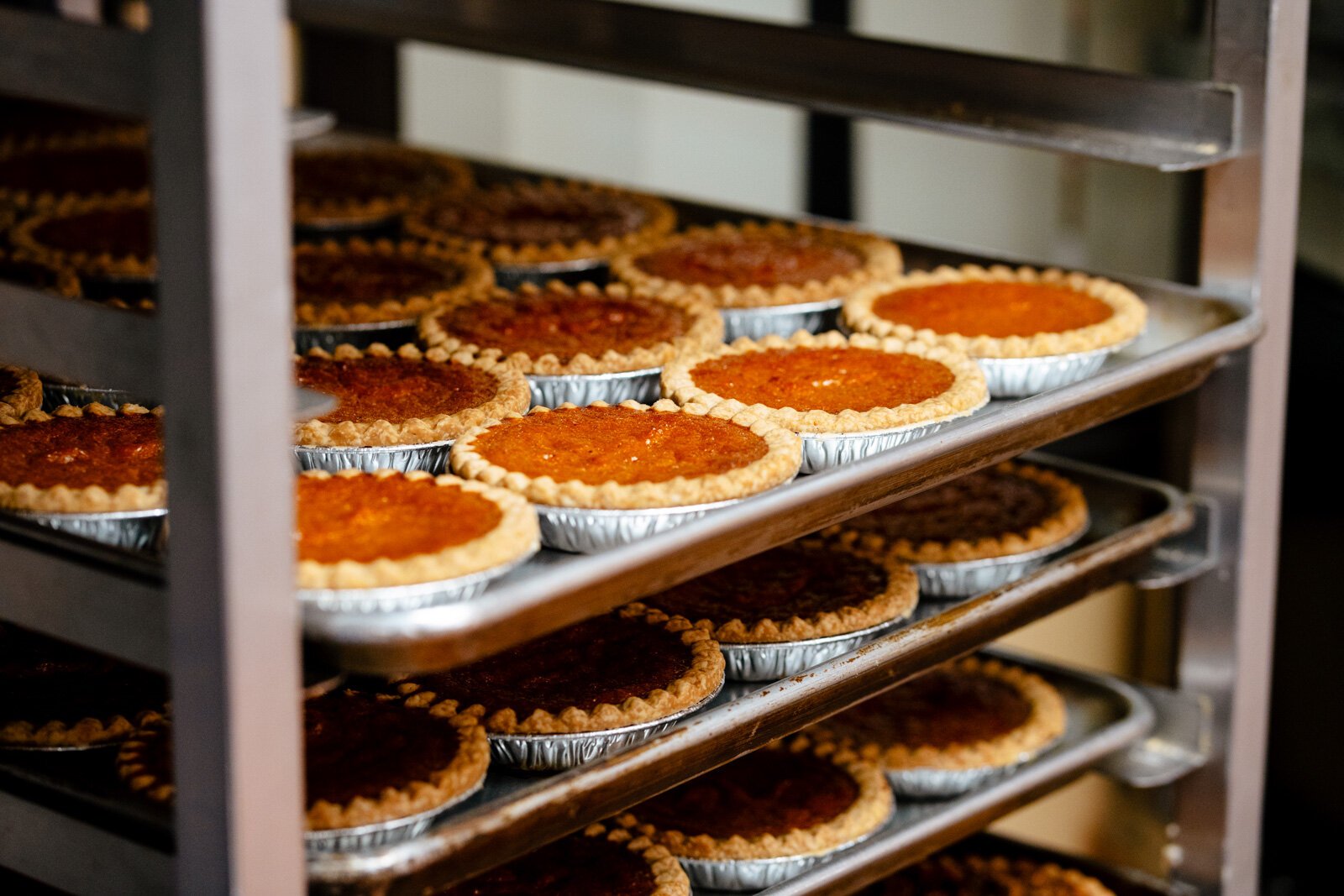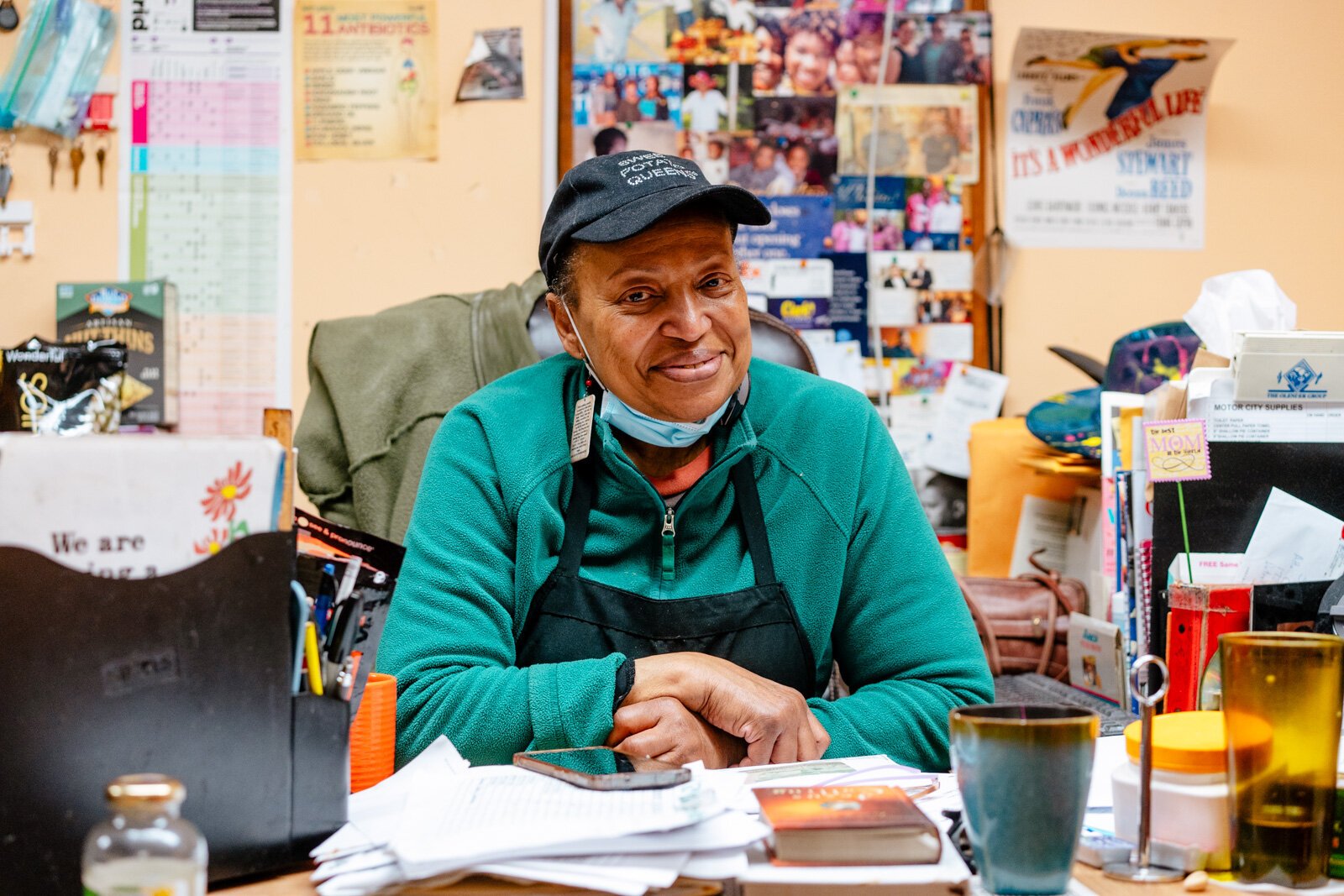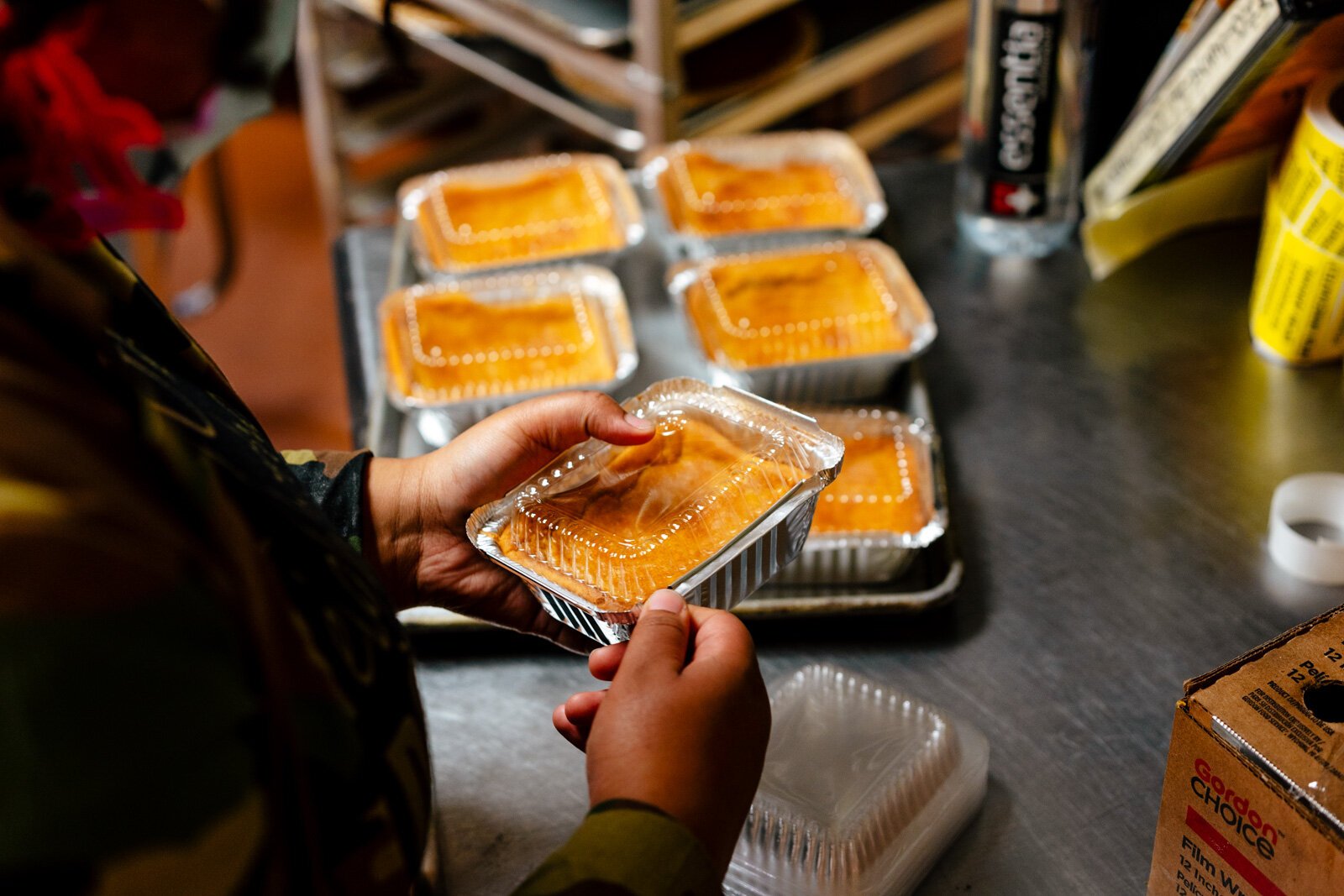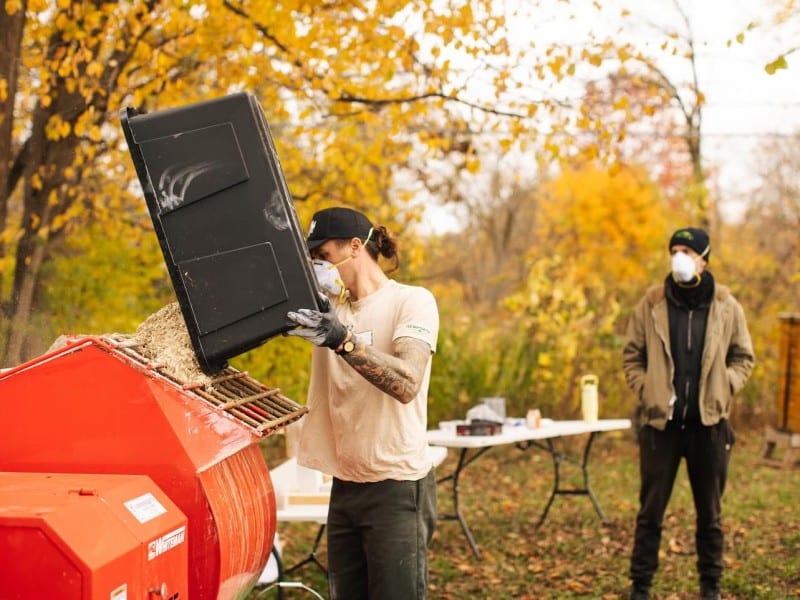Make food, not waste: 30 Metro Detroit food businesses to lead the US in sustainability pledge
In the food business, less is more. These 16 Metro Detroit food businesses have already started leading the country in a sustainability movement boasting economic, environmental, and community benefits. They're looking for more to join them.
This story is co-published with Planet Detroit.
In the food business, less is more.
“I learned very early on in my culinary career, the less waste you create, the more revenue you can create, if you’re creative,” Chef Omar Anani of Detroit restaurant Saffron De Twah, a 2022 James Beard finalist, said. Inspired by ancient nose-to-tail cooking approaches, Saffron concocts things like lemon sugar and salt, preserves from citrus rinds, and Moroccan carrot cake and roasted beet puree from juice pulp to minimize waste and maximize profit.
Anani is one of a group of Detroit food businesses leading the U.S. in a sustainability movement boasting economic, environmental and community benefits called The PLEDGE on Food Waste. The PLEDGE is an international third-party certification program that teaches restaurants, hotels, and catering companies how to throw away less food, aligning with the United Nations’ Sustainable Development Goals.
So far, The PLEDGE has been most active in Europe and Asia, but Danielle Todd, founder and executive director of Detroit nonprofit Make Food Not Waste, aims to change that, starting here in Detroit. So far, Todd has recruited 16 Detroit-area food purveyors to sign onto The PLEDGE and aims to get 30 pledges by the end of the summer. MFNW is the first organization in the nation to offer this program, in partnership with Food Rescue US – Detroit. Restaurants who take The PLEDGE commit to shrinking their carbon footprint, cutting food costs, building their brand, and giving back to the community.
“This shows that restaurants in Detroit really care about sustainability and that Detroit is a leader in adopting this,” says Todd. “I’m hopeful it’ll take off all over the state.”
The Detroit-area 30 will achieve their certification through a $60,000 grant to MNFW from the Environmental Protection Agency. The grant was originally exclusive to Detroit businesses but was widened in early May to increase participation throughout the metro area. Todd received training through the initiative, to work with local restaurants as an accredited consultant. She’s eager to help create solutions to food waste that focus on prevention.
“A lot of times, when restaurants think about how they can cut down on the food they throw away, they think, ‘I need to donate more, or compost more’,” she says. “Those two areas are wonderful, and they’re part of The PLEDGE, but it’s also incredibly important to focus on how you can get to the source and stop it before it even happens.”
Restaurants that sign on to The PLEDGE commit to tracking their food waste and implementing a series of reduction tactics in purchasing, storage, plating, knife skills, staff training, and more. Certification timelines may vary from six weeks to six months, as each restaurant’s inner workings are different. With this initial group, MFNW is hoping to better understand what the process takes, and to show that its benefits will outweigh any challenges.
Getting Started
“In Detroit, we have such an amazing diaspora of food,” says Anani. “To be able to lead the way, and teach people there are better practices, especially now with the volatility of the market, with product shortages, wage wars, and all this stuff going on in the industry, it means a lot to me.”
His modern Moroccan bistro on Gratiot near Eastern Market is working on gaining an all-star level certification, a reflection, he says, of his team’s commitment to intention and excellence.
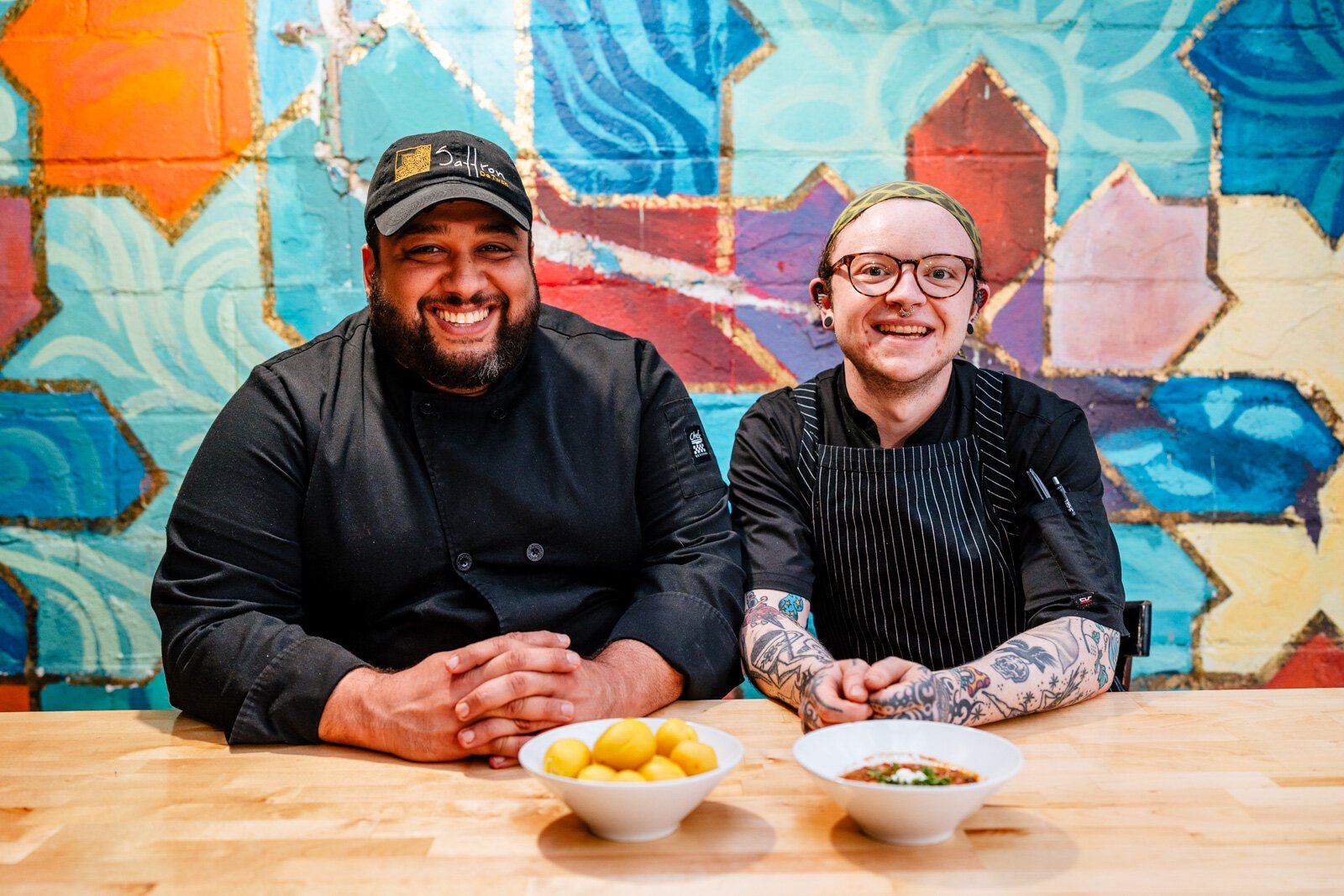
The PLEDGE offers four levels of certification: bronze, silver, gold, or all-star, depending on how many food waste reduction steps participants complete. Though Saffron’s still at the beginning of the process, Anani says he’s not starting at square one. His kitchen is already doing many of the action items on the program’s checklist, such as weighing and logging food waste and repurposing ingredients.
Anani equates The PLEDGE with organic farming certification.
“There are a lot of farmers who farm organically, but they’re not certified organic,” he says. “And the difference is that piece of paper that says, ‘Hey, you can trust us, we really do this.’” Many don’t go through the process, because they’re so focused on the farm and the product, that they aren’t organized, or concerned about other things, he says, and the same goes for chefs.
Creating buy-in with staff is critical to implementing any sustainable change, Anani says, otherwise, as a leader, you’re just checking boxes. After struggling to make timely progress with The PLEDGE himself, he’s empowered a chef who is passionate about the program to shepherd the restaurant through its certification.
“Most cooks come out of small mom and pop restaurants. So if we can start training the future generations to do things the right way in our kitchens,” he says, “when they go to work at these hotels and big chains, they can implement that change on a larger scale.”
Creating community buy-in
Espy Thomas, co-owner of Sweet Potato Sensations in the Old Redford neighborhood, is also thinking about education for her customers and staff. A vibrant mural of the agricultural scientist and inventor George Washington Carver adorns the wall of her family’s business, one committed to honoring its ancestral legacies.
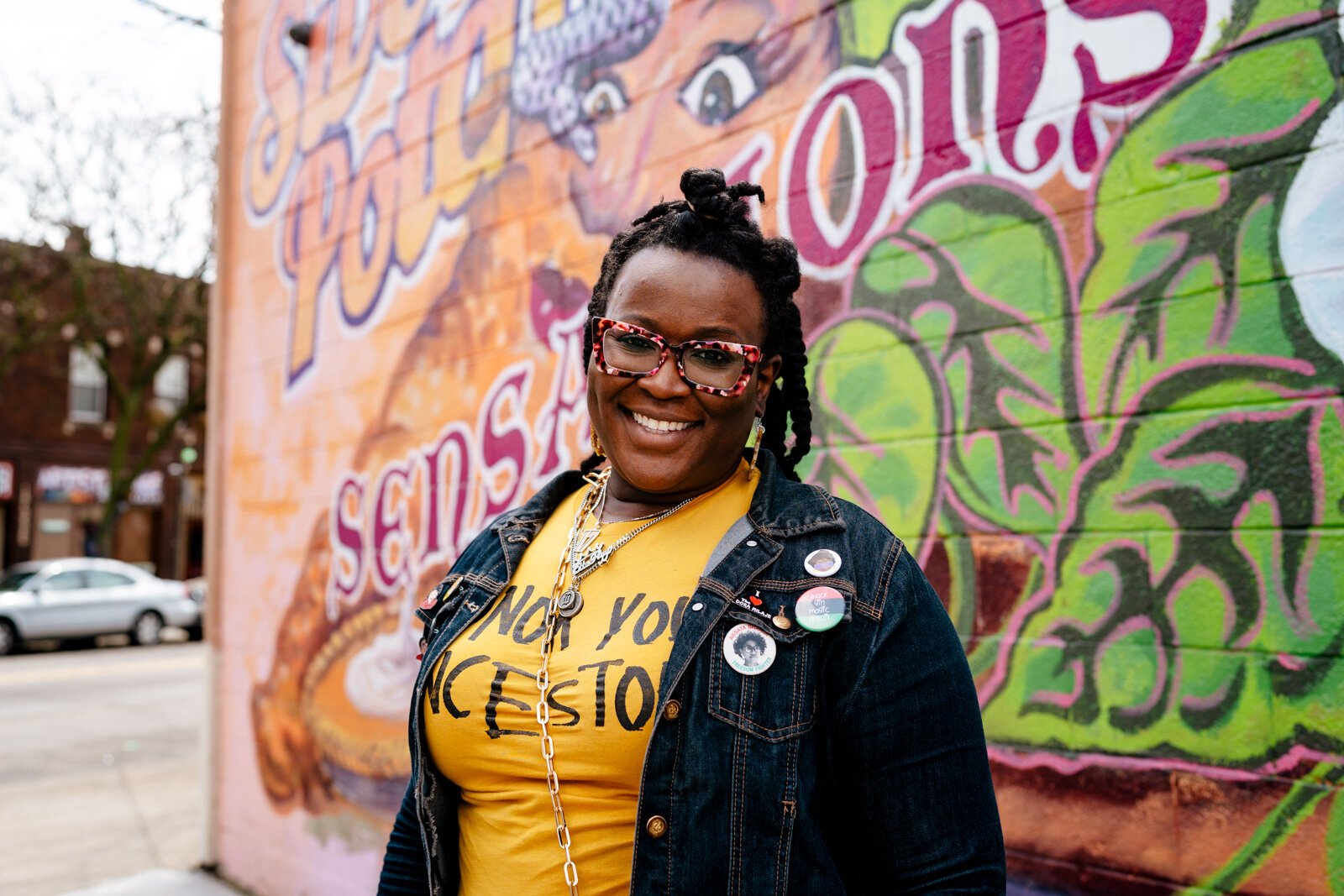
Through daily recycling, composting and precision knife work, she and her sister Jennifer Thomas honor the “proclamation” their mother Cassandra made, to “save the world” so her daughters and grandchildren would have someplace nice to live. Together, the two daughters and their mother run the business Cassandra and her husband Jeffery Thomas launched over 30 years ago.
Thomas likes being among the first to take The PLEDGE, and the opportunity it offers to gain recognition for the sustainability actions her bakery’s already taking. She doesn’t want just a sticker in the window, but rather, a chance to start conversations with customers, maybe even demo classes, on repurposing ingredients and the importance of reducing food waste. Reports show that 40% of what Americans grow every year ends up as methane-releasing trash, a substantial contributor to global warming.
“People would buy in a whole lot more if they understand the why,” she says. “They’re trying to work and feed their family, and maybe don’t have time to care as much because they have so many other things that are more paramount.”
“But if they understand how it impacts them, maybe it would have more value,” she says. “And maybe they’d want to patronize more, because this is a company that takes the future of food, and the future of the world, seriously.”
In an underserved community like this one, where recycling and composting isn’t convenient or free and some people struggle to get the food they need and want, she says, sustainability practices are often an uphill battle. She credits her mother’s trailblazing efforts to have set these standards in their family home and business many years ago.
And it will take that same level of passion and commitment for Thomas to lead the bakery’s efforts with The PLEDGE. Creating new processes and buy-in among her limited staff, and especially finding time and energy for documentation, while already wearing multiple hats, will be a challenge, she says – but one worth doing. She’s inspired, and realistic.
“We don’t strive for perfection, we strive for better. We want to be somewhere in the middle,” she says, “where we can keep adding to the practices we’re doing right now. We want our future staff to see that we care about our neighborhood, and about being a part of things bigger than ourselves.”
Good for the environment, good for business
Internationally, restaurants who’ve taken The PLEDGE are seeing an average 3% to 5% drop in their food costs, Todd says. With prices higher than ever before, and restaurants already operating on small margins, those savings can be meaningful.
At the Apparatus Room inside the Detroit Foundation Hotel, executive chefs Ken Miller and Duncan Spangler are working to tighten operational processes amid a tight labor market due to COVID-19. In tandem with their overall efforts, The PLEDGE offers structured ways to be good stewards of the kitchen, Spangler says, something both chefs have long prioritized, whether it’s using all parts of the protein or vegetable, or reimagining the creation of a dish.
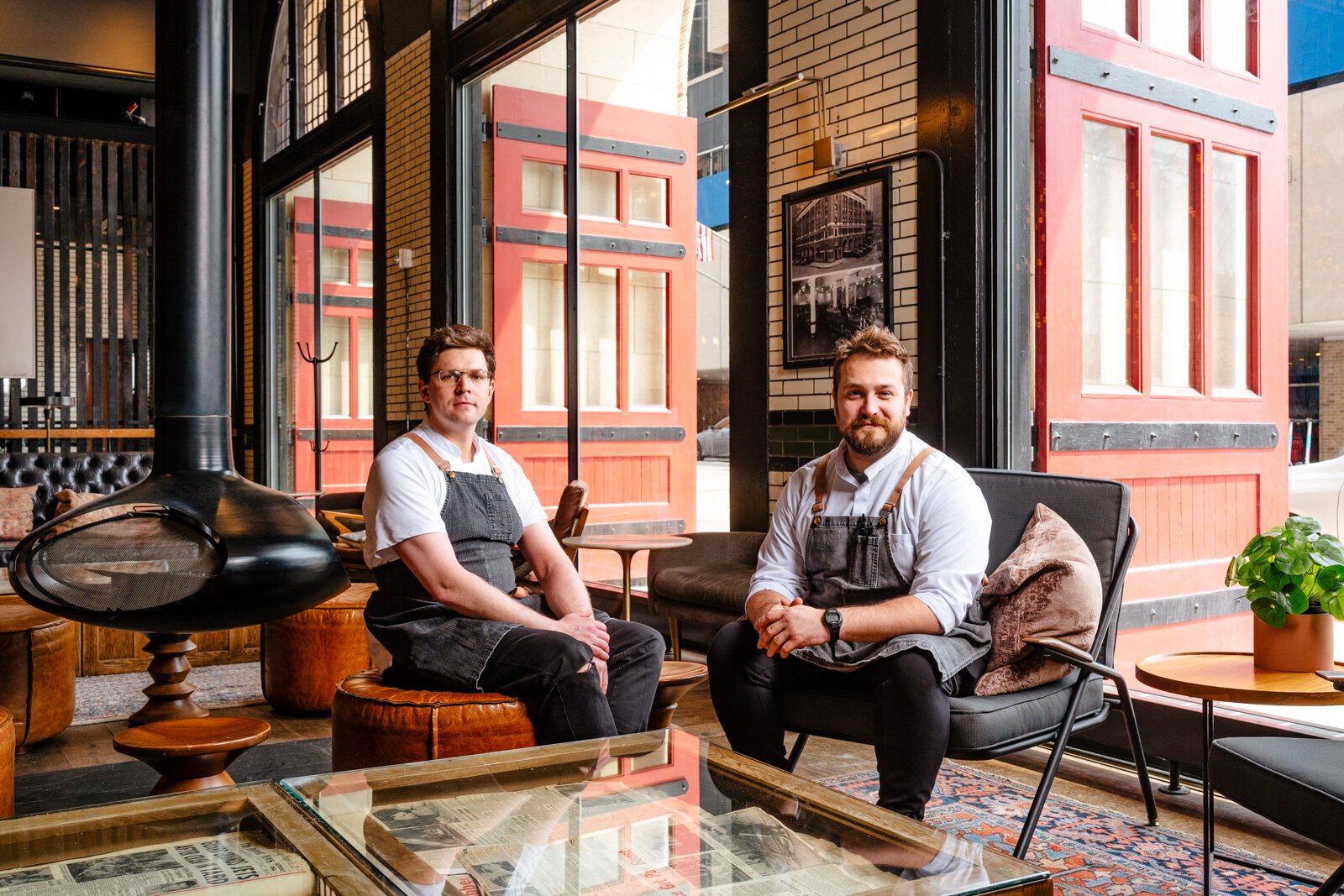
“It all kind of ties into good business practices. You make more money if you buy less food, and use it all rather than throwing it away,” Spangler says. “I think this property has always had that culture, but the labor shortages of the past few years have caused a few things not to happen as much.”
The chefs’ contemporary American cuisine includes offerings like broth made from the smoked bones of the sablefish and a dish crafted specifically to enliven potentially wasted ingredients: baba ganoush, a foraged garlic mustard pesto, and crackers made from spent bread.
“Aiming for the stars,” Spangler is eager to see how many of The PLEDGE’s action items their kitchen can tackle over the next few months. There is support on a corporate level and from the hotel’s upper management, he says, but overcoming the paperwork hurdle, and the “nitty-gritty aspects” of weighing food waste for a larger operation (the kitchen composts 500 pounds of scrap a week) is a bit daunting, especially, when working with inexperienced new hires.
Todd’s weekly nudging and gentle reminders to keep pushing forward have helped serve as useful reminders in the practices he and Miller have always tried to follow. And it’s important, he says, “to be able to let the public know this is something that happens here.”
Make Food Not Waste is looking for more Detroit-area restaurants to join the growing movement.
“I think Detroit is always viewed as scrappy and community-driven, but you don’t necessarily think about it in an environmental way, especially with the car industry and whatnot,” says Spangler. “This will definitely put us on the map in terms of that side of things. Hopefully, it brings to light practices that, not only us, but a lot of other participants, have utilized for years.”
Check out the first Detroit restaurants & businesses to participate:
- The Apparatus Room
- Avalon International Breads
- Baobab Fare
- BasBlue
- Brooklyn Street Local
- Farmacy Food
- FOLK
- Founders Detroit Taproom
- Good Cakes and Bakes
- Madam at Daxton Hotel (Birmingham)
- PizzaPlex
- Saffron De Twah
- Sister Pie
- Soil2Service
- Sweet Potato Sensations
- University of Detroit Mercy / Metz
Those interested in finding out more about The PLEDGE on food waste can contact Danielle Todd at danielle@makefoodnotwaste.org or by calling 313-241-4125
All Photos by Nick Hagen.
